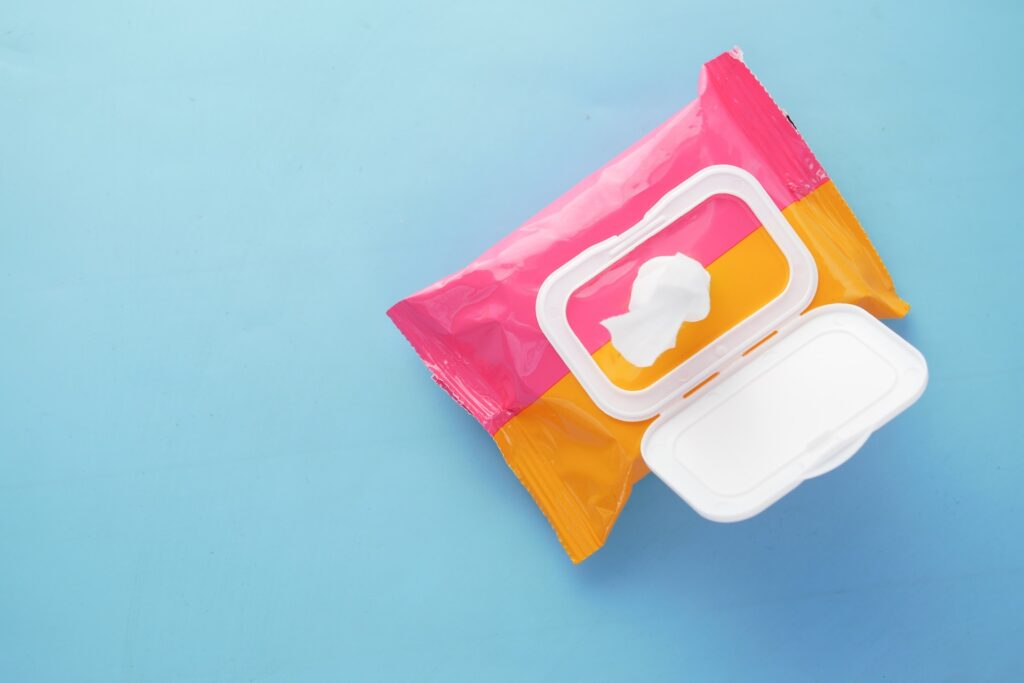Dogs should have a varied diet and you can try feeding them new stuff from time to time. Some foods like kefir even offer positive effects for dogs. But what are the benefits of kefir for dogs?
Kefir offers dogs probiotics for digestive health, strengthens their immune system, and promotes a shiny coat. It can also give many other benefits. But you need to know how to prepare and give it to your dog.
- What exactly is kefir, and where does it come from?
- What are the nutritional benefits of kefir for dogs?
- What is the effect of kefir on your dog’s health?
- How to introduce kefir to your dog?
- How to make kefir for dogs at home?
- Is this drink good compared to other probiotics and are there good alternatives?
What exactly is kefir, and where does it come from?
Kefir is a dairy product that originated in the Caucasus Mountains. It’s made by fermenting milk with kefir grains. These grains give kefir its unique probiotic properties, making it a natural source of beneficial bacteria for dogs. The milk used can be from a cow, goat, or sheep.
Kefir differs from other probiotics due to its diversity of beneficial microorganisms. It contains a wide range of bacteria and yeast strains.
What are the nutritional benefits of kefir for dogs?
This milky drink is filled with nutrients. It includes a wide range of vitamins including K, B, and D. Minerals like calcium, magnesium, and phosphorus are also present.
It is also an excellent source of high-quality protein, while its fat and calorie content is really low. The most important thing found in the drink is probiotics. In fact, it can contain up to 61 different strains of yeast and bacteria that are healthy for the dog’s gut. Such are Lactobacillus acidophilus, Lactobacillus casei, Lactobacillus plantarum, and Bifidobacterium lactis. There may even be more than that. A study by Dr. Li Ling Tan et al. did an investigation on a sample of kefir and discovered that:
| A total of 158 microbial strains, representing six fungal and 17 bacterial species, were isolated from milk and water kefir grains collected from a Singapore-based homebrewer. |
What is the effect of kefir on your dog’s health?
Being so nutritiously rich, it is no wonder that this food can positively affect the dog’s health. There are many ways of how kefir benefits dogs.
Improved digestion
The high amounts of probiotics present in this dairy product are perfect for keeping the dog’s gut healthy. For one, it protects dogs from getting infected by bacteria like E. coli and Salmonella. Then, it also helps dogs that take antibiotics by providing healthy bacteria for the gut. The B12 vitamin is also great for keeping the digestion healthy. Low calories also help with weight management.
Enhanced immunity
Another benefit of the healthier microbiome is the improved immunity it provides to dogs. This is especially useful for dogs that have worms. Kefir is only one of the few natural dewormers for dogs. Good immunity is also very useful to reduce the amount of urinary tract infections in dogs. The same rule applies to skin infections.
Allergy management
Another positive of using kefir for dogs is that it can decrease the instances in which your allergic dog develops reactions. This food kills off the pathogens that cause allergies in its gut. Besides that, it is useful for treating rashes and itching by providing vitamins that help maintain healthy skin and fur.
Other positive effects
One great thing about the drink is that it can decrease bad breath by killing bad bacteria in the dog’s mouth. The presence of vitamin K2 helps regulate calcium metabolism and reduces fractures in dogs by enhancing their bone strength. This is quite useful for arthritis relief as well.
It also helps with coagulation of blood, especially if a dog eats rodenticides. “Vitamin K reverses the anticoagulant effect of rodenticides over a period of 24 to 48 hours from initiation of therapy.”. According to the Cornell University College of Veterinary Medicine. This meal is also very useful for senior dogs as it prevents further illnesses and complications.
How to introduce kefir to your dog?
Introducing kefir to your dog’s diet should be done gradually. Start with small amounts and monitor your dog’s reaction. A good number to start with is around a ¼ to ½ teaspoon per day.
There are some dogs that can react to this food with digestive issues. In that case, your dog may not be fit for it, so you can try to find something else to feed it. If your dog does react well, you can increase the portion. A safe amount to feed a dog is around 1-2 teaspoons per 15 pounds of body weight.
You can give this food in a bowl by itself or drizzle it on its regular meals. You can also try making popsicles or ice cubes with it for the hot summer days. The best time to offer this food is when the dog is suffering from digestive problems. Just make sure to control how much it gets to eat as some dogs don’t know when to stop eating.
How to make kefir for dogs at home?
Making kefir at home is relatively simple. You make it by putting some milk and around a tbsp of kefir grains in a glass jar, leaving a bit of space at the top. Then, you cover the opening of the jar with a breathable cheesecloth, secure it with a rubber band, and let the mixture ferment for around 24 hours. The mix will be thickened and white and yellow strains will be visible on the surface.
Now you need to strain the mix through a plastic or metal strainer into another clean glass jar. Then, you seal the jar and put it in the fridge to keep it cool. With the strained grains, you can put them into another jar with milk, cover them, and let them ferment again. They will reproduce and grow with time. If you don’t want to make it at home, you can always spend a few bucks and buy it at the store.
What are some fun kefir recipes you can try?
Feeding homemade kefir for dogs is perfectly fine, but you can make it more fun and tastier by combining it with other healthy foods. Peaches go great with this drink. You can cut up half a cup of peaches and put them in a blender with 2 cups of kefir, and you will have a delicious and healthy shake.
You can also do the same thing by mixing in ½ cup of strawberries or blueberries. All of these fruits provide a lot of health benefits for dogs.
Is this drink good compared to other probiotics and are there good alternatives?
This food is a great option if you want to give some probiotics to your dog. This is because it contains a lot of probiotic strains. However, if your dog doesn’t like it or experiences some of the potential side effects of kefir for dogs, you can try some other options.
A very similar food to this one is Greek yogurt. It is a delicious food that is very versatile and can be combined with many other foods. Some cheeses can also provide healthy gut bacteria for dogs. But don’t give dogs pepper jack cheese, or other cheeses that can cause more harm than good. Instead, try out mozzarella, cottage cheese, or cheddar. There are some types of dog foods that include probiotics too. If none of this feels appropriate, you can always get some dog-friendly probiotic supplements. Just make sure you choose the proper strains. If you need help, you can always ask your vet for help.
So will you decide to give this food to your dog?
Kefir is an amazing choice of food if you want to feed your dog some probiotic-rich foods. They help maintain a healthy gut and provide diarrhea relief to the dog. But that is not all that this food can do for your dog.
It can also boost the dog’s immunity, protecting it from different kinds of infections, while also preventing allergy attacks. There are also talks that it helps with bad breath and strengthens bones.
While kefir is safe for dogs, you should be careful with how you introduce it to your dog. You should always start slowly with smaller amounts, and then increase the quantity if everything is okay. If your dog doesn’t like this food, you can always try its delicious alternatives or buy supplements.
FAQ
Does kefir have lactose?
Yes, this drink does contain small amounts of lactose due to the milk used to make it. However, during the fermentation process, bacteria break down this lactose to feed, so only little is left. This makes it safer for dogs with lactose food intolerance.
Is kefir suitable for senior dogs?
Yes, senior dogs can benefit a lot from this drink. However, as dogs age they seem to become more prone to becoming intolerant to lactose. So giving small quantities and keeping an eye on the dog is essential.
Can puppies have kefir?
Puppies can experience the same benefits of kefir for dogs as adults do. The thing you have to have in mind is that their stomachs are more sensitive so the introduction should be slower and monitored.
More dog nutrition resources
Here are a few other resources talking about giving certain foods to dogs and the effect they have on their health.
- Can dogs have ritz crackers
- Dog ate uncooked rice
- How to cook chicken hearts for dogs
- Can dogs eat seasoned chicken
- Can dogs eat vegetable soup
You can find a lot more information on the types of food you can feed your dog on our site Dogisa!
What To Do If Your Dog Ate A Baby Wipe: Advice And Solutions
Dogs like to chew on things and sometimes they will get their chompers on something…
Do Poodles Pick A Favorite Person? – How To Be The Favorite
Poodles are loving and intelligent dogs that will fit in perfectly with your family. And…
Do Poodles Bite? – Reasons For Biting And How To Control It
Poodles are a cute dog breed that is very popular among dog owners. People usually…
Why do Dog Leave Odorless Wet Spots? And how to treat them
It is not uncommon for dog owners to notice that their dog leave odorless wet…
Why Does My Dog Only Have Diarrhea At Night? [How To Help]
Diarrhea is not an uncommon thing and most dogs will suffer from it at least…
A Complete Guide To The Corgi Heat Cycle [+ Tips]
Going into heat is what we refer to when we talk about periods in dogs….







